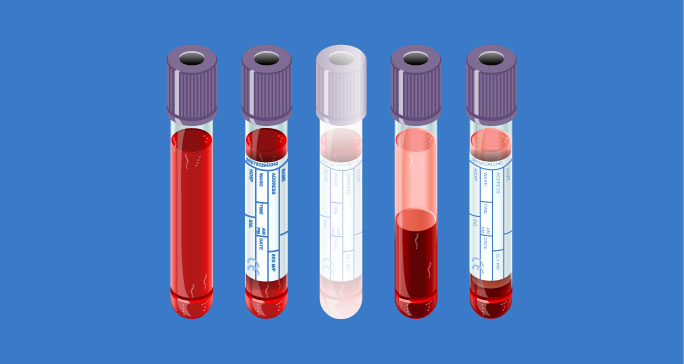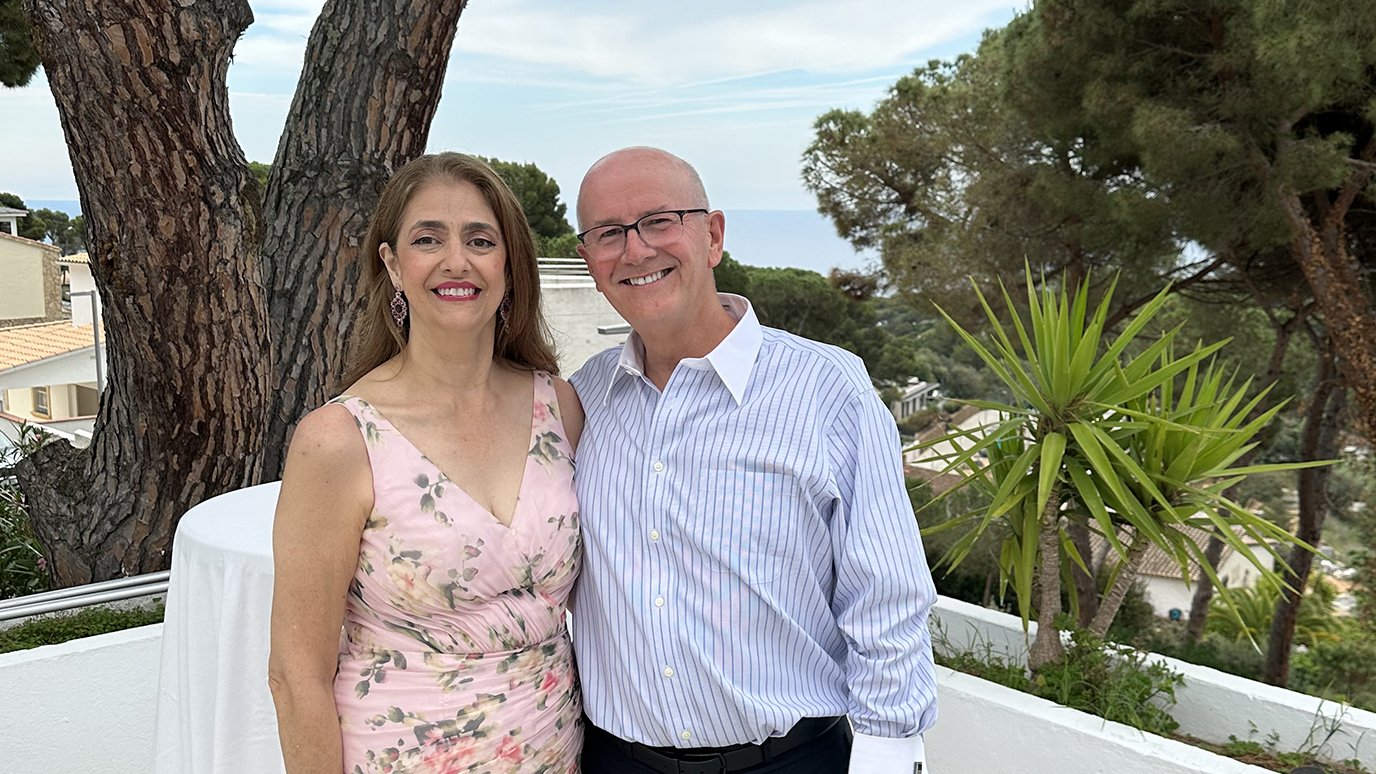- Diseases
- Acoustic Neuroma (14)
- Adrenal Gland Tumor (24)
- Anal Cancer (66)
- Anemia (2)
- Appendix Cancer (16)
- Bile Duct Cancer (28)
- Bladder Cancer (68)
- Brain Metastases (28)
- Brain Tumor (228)
- Breast Cancer (716)
- Breast Implant-Associated Anaplastic Large Cell Lymphoma (2)
- Cancer of Unknown Primary (4)
- Carcinoid Tumor (8)
- Cervical Cancer (154)
- Colon Cancer (164)
- Colorectal Cancer (110)
- Endocrine Tumor (4)
- Esophageal Cancer (42)
- Eye Cancer (36)
- Fallopian Tube Cancer (6)
- Germ Cell Tumor (4)
- Gestational Trophoblastic Disease (2)
- Head and Neck Cancer (6)
- Kidney Cancer (124)
- Leukemia (344)
- Liver Cancer (50)
- Lung Cancer (288)
- Lymphoma (284)
- Mesothelioma (14)
- Metastasis (30)
- Multiple Myeloma (98)
- Myelodysplastic Syndrome (60)
- Myeloproliferative Neoplasm (4)
- Neuroendocrine Tumors (16)
- Oral Cancer (100)
- Ovarian Cancer (170)
- Pancreatic Cancer (166)
- Parathyroid Disease (2)
- Penile Cancer (14)
- Pituitary Tumor (6)
- Prostate Cancer (144)
- Rectal Cancer (58)
- Renal Medullary Carcinoma (6)
- Salivary Gland Cancer (14)
- Sarcoma (236)
- Skin Cancer (294)
- Skull Base Tumors (56)
- Spinal Tumor (12)
- Stomach Cancer (60)
- Testicular Cancer (28)
- Throat Cancer (90)
- Thymoma (6)
- Thyroid Cancer (98)
- Tonsil Cancer (30)
- Uterine Cancer (78)
- Vaginal Cancer (14)
- Vulvar Cancer (18)
- Cancer Topic
- Adolescent and Young Adult Cancer Issues (20)
- Advance Care Planning (10)
- Biostatistics (2)
- Blood Donation (18)
- Bone Health (8)
- COVID-19 (362)
- Cancer Recurrence (120)
- Childhood Cancer Issues (120)
- Clinical Trials (622)
- Complementary Integrative Medicine (24)
- Cytogenetics (2)
- DNA Methylation (4)
- Diagnosis (226)
- Epigenetics (6)
- Fertility (62)
- Follow-up Guidelines (2)
- Health Disparities (14)
- Hereditary Cancer Syndromes (122)
- Immunology (18)
- Li-Fraumeni Syndrome (8)
- Mental Health (118)
- Molecular Diagnostics (8)
- Pain Management (62)
- Palliative Care (8)
- Pathology (10)
- Physical Therapy (18)
- Pregnancy (18)
- Prevention (890)
- Research (388)
- Second Opinion (74)
- Sexuality (16)
- Side Effects (602)
- Sleep Disorders (10)
- Stem Cell Transplantation Cellular Therapy (216)
- Support (404)
- Survivorship (322)
- Symptoms (184)
- Treatment (1768)
For follicular lymphoma survivor, time is on her side
6 minute read | Published May 19, 2020
Medically Reviewed | Last reviewed by an MD Anderson Cancer Center medical professional on May 19, 2020
When Maribeth Holzer asked her family doctor about a curious lump in her right armpit, she never suspected it was follicular lymphoma. Her doctor said it was probably an ingrown hair caused by shaving, or perhaps a blocked pore due to antiperspirant use.
But when a purple, dime-sized spot suddenly appeared on Maribeth’s face, she decided to visit a dermatologist.
“I felt fine,” she says, “but thought I should have that strange splotch checked out. As long as I was there, I’d ask about the armpit lump, too.”
It’s a good thing she did.
A biopsy revealed Maribeth had follicular lymphoma, a type of B-cell non-Hodgkin lymphoma that starts in the body’s immune system. Follicular lymphoma symptoms may include a lump in the armpit, neck or groin, caused by cancerous immune cells that build up in lymph nodes and cause swelling. The disease can also produce a skin rash that appears as one or more scaly red or purple patches.
“Those were my only telltale signs,” Maribeth says. “Other than that, I didn’t even know anything was wrong.”
The dermatologist in Maribeth’s small Louisiana town suggested she seek cancer treatment in nearby Shreveport or at MD Anderson in Houston.
“Right away, I knew I wanted to go to MD Anderson,” Maribeth recalls, “but just to be sure, I asked him where he would go. He said ‘Definitely, MD Anderson.’”
Days later, Maribeth and her husband made the five-and-a-half hour drive to Houston.
A stage IV follicular lymphoma diagnosis
At MD Anderson, lymphoma specialist Hun Lee, M.D., ordered three days of testing to confirm Maribeth’s diagnosis and see how far the cancer had spread.
“I was told to go home and wait for the results,” Maribeth says, “but Dr. Lee called me at my hotel as I was packing to leave and said, ‘Don’t go. I need to see you tomorrow.’”
The next morning, an anxious Maribeth sat solemnly in Lee’s office as he shared the results: Her cancer was stage IV – the most advanced kind – and had travelled through her lymphatic system to other organs in her body, including the lungs, liver, spleen, stomach and bone marrow.
When Maribeth asked if he could successfully treat the cancer, Lee responded without hesitation: “Oh, I’ll get it.”
His confidence immediately calmed Maribeth.
“I took a deep breath and felt a wave of relief,” she recalls. “His confidence calmed all my fears. I told him, ‘You’re in charge, I’m just along for the ride.’”
Follicular lymphoma is slow growing and symptom-free
By the time follicular lymphoma is diagnosed, it has usually spread beyond the lymphatic system to other places in the body. Because it typically grows very slowly, the disease often is advanced by the time symptoms appear. Most people have no symptoms, and therefore don’t visit a doctor, which gives follicular lymphoma time to spread. Those who do experience symptoms usually complain of swollen lymph nodes, fever, fatigue or skin rash. By this time, the disease has reached an advanced stage.
“‘Advanced’ can sound sound alarming,” Lee says, “but most people with follicular lymphoma are at an advanced stage when they are diagnosed. There are many effective treatments for all stages of the disease, and these can usually control it for many years, even decades.”
Finding the right follicular lymphoma treatment
Maribeth’s treatment began with a clinical trial testing a three-drug combination – rituximab, ibrutinib and lenalidomide. The drugs work together to target and attack lymphoma. After a year, she was one of only two participants on the clinical trial who failed to go into remission, which occurs when all signs and symptoms of cancer have disappeared.
“I was so disappointed, but happy the treatment worked for others,” she says.
Next, Lee placed Maribeth on the chemotherapy drug bendamustine. But after a few months, she began experiencing memory loss – a rare side effect – and had to discontinue the medication.
Finally, Lee prescribed the immunotherapy drug obinutuzumab. The medication wiped out all visible signs of Maribeth’s cancer, except one small spot. After a few rounds of radiation therapy, the spot was gone.
Follicular lymphoma treatment options for a possible recurrence
On Feb. 11, 2020, Maribeth was declared “in complete remission,” which some doctors also describe as “no evidence of disease.” But that doesn’t mean she is cured.
“The more advanced follicular lymphoma is when diagnosed,” Lee explains, “the greater the chance it will return.”
When that happens, a number of treatment options are available, he says, including chemotherapy drugs that stop or slow the growth of rapidly dividing cancer cells, radiotherapy that uses high doses of radiation to kill cancer cells, or newer targeted therapies that work in several ways. Some targeted therapies deliver toxic drugs directly to cancer cells without harming healthy cells. Others block the action of molecules that help cancer cells grow, while still others train the immune system to attack cancer.
“Several targeted therapy drugs for follicular lymphoma already are approved, and many others are being tested in clinical trials,” Lee says. “The outlook for people with the disease continues to improve.”
MD Anderson researchers are also testing CAR T cell therapy as a follicular lymphoma treatment. The therapy reprograms a patient’s own immune cells to recognize and kill cancer.
Most people with follicular lymphoma are treated to keep the lymphoma under control, rather than to cure it. The disease can usually be kept at bay for many years with several courses of treatment.
“The good news is, time is on your side,” Lee says. “Follicular lymphoma grows slowly, and new and better treatments are helping people live disease-free longer. Although it usually can't be cured, you can live long and well with follicular lymphoma. Most people respond well to treatment -- not just the first time, but even when it comes back.”
Little details make a big impact in lymphoma care
This September, Maribeth will return to MD Anderson for a checkup with Lee, whom she calls “the world’s best doctor.”
“He’s an extraordinary communicator,” she says. “He explains complicated medical information in a simple way that anyone can understand.”
When she has a question about her treatment, Maribeth messages Lee using MD Anderson’s patient portal, MyChart. Within minutes, Lee responds.
“I won’t message him on nights or weekends, because I know he’ll answer right away,” she says. “He deserves a break.”
Visiting MD Anderson is always a positive experience, she says.
“Everyone I meet is so considerate and attentive. They always put my needs first, like the nurse who held my hand during a particularly difficult medical procedure, and the scheduler who arranged my appointments closely together so I could make it home in two days instead of three.”
“Little things like those make a big impact,” she says.
Inspiring others
Back home in Monroe, Louisiana, Maribeth is working with her school district’s teachers and administrators to find ways to improve lessons and instruction.
“Working to better the lives of young people is one of my greatest joys,” says the former middle school math teacher, who also volunteers for a nonprofit organization that helps underprivileged teens prepare for a successful future.
Recently, she signed on as a volunteer with myCancerConnection, MD Anderson’s one-on-one cancer support community. The program matches cancer survivors with patients who are newly diagnosed or undergoing treatment.
“So many wonderful cancer survivors called me to offer support, share their experiences, and tell me what to expect during my treatment,” Maribeth says. “Now I want to do the same. Patients and survivors share a special bond. We belong to the same club, and can be a blessing to each other.”
Her advice to anyone affected by cancer: “Continue to live your life! Ask for help when you need it, be kind to yourself, stay positive, surround yourself with positive people, and take time to appreciate the little things. If you can, take a walk every day. It does wonders for your soul.”
Request an appointment at MD Anderson online or by calling 1-888-665-0889.
Related Cancerwise Stories

They always put my needs first.
Maribeth Holzer
Survivor





